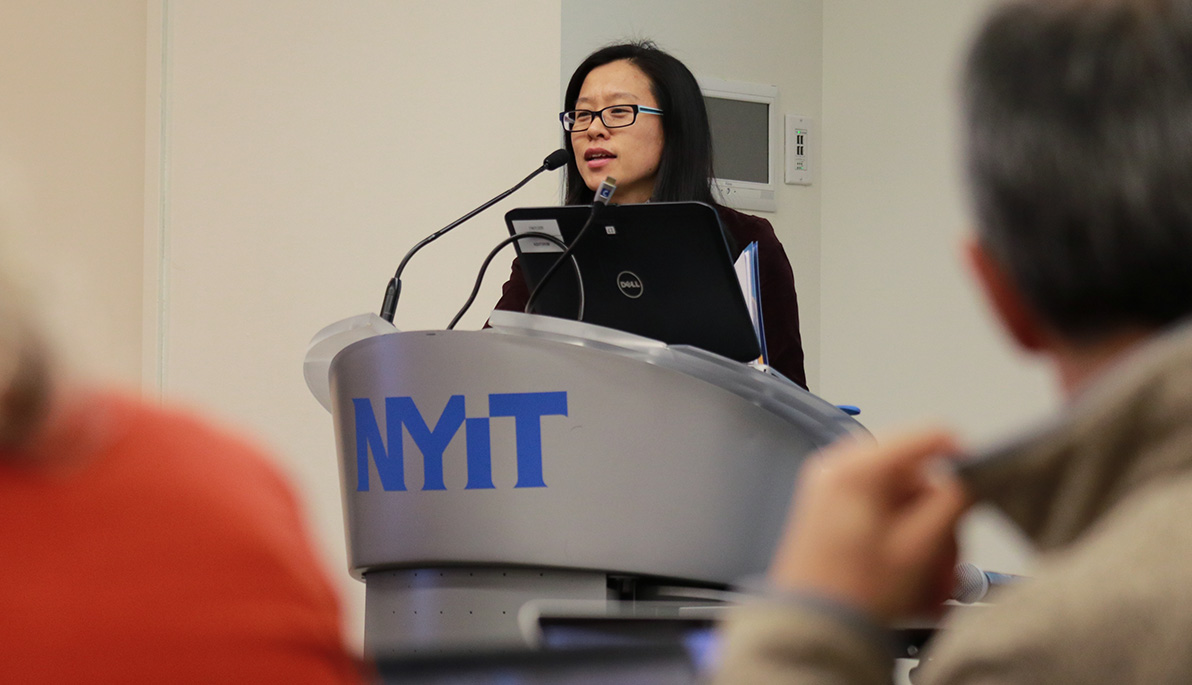
NYIT Workshop Examines Urban Infrastructure Systems
December 18, 2017
Urban areas around the world are facing multi-faceted challenges to be resilient to environmental impacts such as those resulting from extreme weather events like Superstorm Sandy. A major area of concern in coastal areas is flooding. Already, various parts of the coastal United States are experiencing “sunny day flooding” because of rising sea levels and higher tides due to melting polar ice. Inland locations face other, equally difficult conditions.
Nearly 100 engineers, urban planners, data scientists, policymakers, and others from U.S. national laboratories, private consultancies, universities, and American, Canadian, Austrian, and German research institutes gathered at NYIT-Manhattan to discuss pressing environmental issues at the workshop, “Urban Infrastructures: Analysis and Modeling for Their Optimal Management and Operation.” The two-day workshop on urban interconnected critical infrastructure (ICI) was sponsored by the U.S. National Science Foundation, Germany’s Federal Ministry of Education and Research, NYIT, and German institution Hochschule für Technik (HFT) Stuttgart.
Workshop participants got acquainted with new simulation tools designed to show the potential impact of short- and long-term environmental events. Planners can put various parameters into the simulation software and see what could happen under given conditions. For example, the simulation can show how sea level rise, salt water intrusion, and different decision scenarios could impact a city’s infrastructure systems.
“With these simulation tools, decision-makers can better understand the interdependence within ICI systems and make informed decisions on policies,” said Ziqian (Cecilia) Dong, Ph.D., associate professor of electrical and computer engineering at NYIT School of Engineering and Computing Sciences. “There are so many factors to consider, and these new tools and technologies can help people decide where to target their efforts.”
Dong organized the workshop with colleagues from the School of Engineering and Computing Sciences, NYIT School of Architecture and Design, The City University of New York, HFT Stuttgart, New York University, and New Jersey Institute of Technology.
In addition to technologies associated with data collection, analysis, and visualization, other panels addressed systems-based and holistic approaches to ICI for food, energy, and water (FEW) supply; the evolution of urban infrastructure; urban informatics; and FEW case studies involving supply, distribution, and waste disposal and recycling systems.
Dong said, “This workshop has enhanced scientific cooperation among a wide range of stakeholders, including scholars and educators; representatives of industry and government agencies; and urban planners and policymakers. We are excited to share what we’ve done here, because these are longstanding challenges that deserve continuing attention.”
More Features

An Alumnus’ Commitment to the Environment
As an energy management graduate from New York Tech’s Vancouver campus, Jasdeep Gulati (M.S. ’22) is highly invested in educating people about environmental and climate sustainability.

Vancouver Faculty Win University-Sponsored Research Awards in New Program
The new Global Impact Research Grant (GIRG) program has been developed to keep Vancouver-based faculty connected to faculty and research projects being conducted on the university’s New York campuses.

Studying Climate Change One Degree at a Time
Junhua Qu (M.S. ’24) began her collegiate journey in Beijing. But, her interest in climate change took her to New York Tech’s Vancouver campus to study energy management.
